Graham Reid | | 4 min read
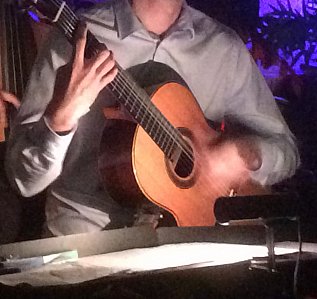
Given the musical breadth, geographic width and emotional depth of Simon Thacker's music it was disappointing that his sole Auckland concert — the final on a nine-date New Zealand tour — should be held in such a small room as the 1885/CJC club and only be attended by a modestly sized, if enthusiastic, audience.
But that too often seems to be the way of it these days for an artist of Thacker's stature.
Despite being a multiple-award winning guitarist whose reach and grasp extends from flamenco and classical styles to the music of India, Pakistan and — as we discovered in this thrilling concert with his Ritmata band – Azerbaijan, there was a parlous amount of advance publicity for his concert.
And conspicuously nothing in the mainstream media.
It would seem these days if you are anything but a classical performer or along the pop/rock and hip-hop axis — and in the latter, already well established — then the media will give you a wide berth. Television? Fuggetaboutit.
Too new, too different, too difficult to think about maybe?
Thacker's musical skills, droll personal charm and that expansive repertoire -- delivered with passionate intensity or subtle sensitivity -- could and should have drawn a very large audience from those with interests across the musical spectrum.
And as we know, they are out there.
But they have to hear about it.
I suspect the “j” word which crept in might be the curse. But although much of his music is improvised, Thacker is not strictly a jazz artist. He is a "post-style" musician as John Adams describes many late 20th century/21st century performers.
Had this concert been promoted and billed as something along the lines of classical or even world music, Thacker and his pals could perhaps have played the Town Hall Concert Chamber or a small theatre.
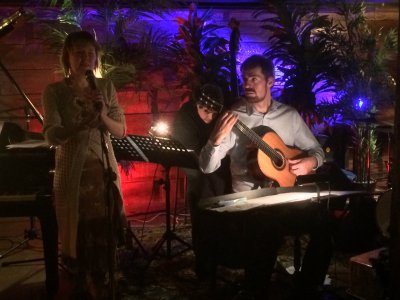
And what a treat this performance was.
For the encore — which he flagged two songs previous by saying it would follow the deafening applause at the end of the official programme — he brought on local singer Caro Manins for the incredibly haunting Madre De Deus, a song which he reimagined from 13th century Spanish source material.
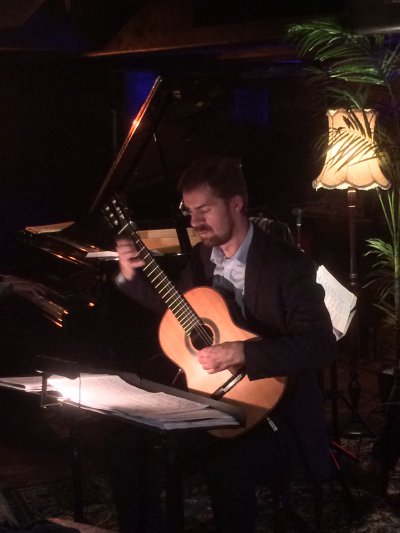 As he noted, much of the music in this
concert had been made up of such diverse origins — some of it very
ancient, others more recent like the two pieces by Brazilian
guitarist Egberto Gismonti – which he had adapted.
As he noted, much of the music in this
concert had been made up of such diverse origins — some of it very
ancient, others more recent like the two pieces by Brazilian
guitarist Egberto Gismonti – which he had adapted.
It's a rare concert in which the music of the distant past such as those drawn from traditional Sephardic Jewish music from Spain can feel so vibrant and of the moment.
As he observed after two pieces adapted from the Spanish Cantigas de Santa Maria – a collection of vernacular notated music of around 400 songs which form the root of Western Music, he said — “the soul lives on through music”.
Thacker was however quick to deny his own composition Asuramaya was an Indian raga even though it was based on the form and his studies in that difficult art form.
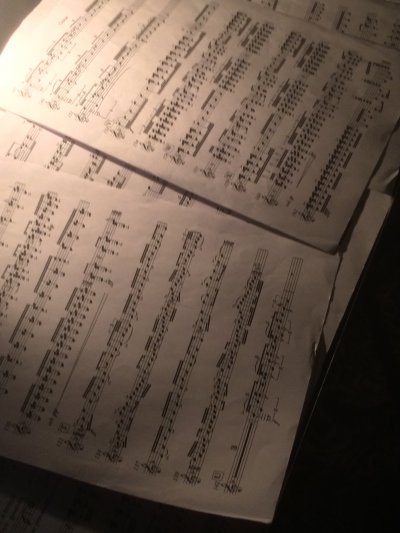 Whatever it was, it too spoke to and
from the living soul.
Whatever it was, it too spoke to and
from the living soul.
And master though he might be — and that is undeniable, as anyone on the night would attest – Thacker had his equals on piano (Paul Harrison), acoustic bass (Mario Caribe) and drums (Stuart Brown).
In Gismonti's Choro which opened the second half he and Harrison played thrilling parallel lines of breathtaking speed and precision.
Such was their symmetry it was hard to discern who was playing what.
For his own Honour the Treaties which he described as being based on the way Native Americans sang at powwows, drummer Brown offered staccato patterns which seemed machine-tooled and drilling into the whole.
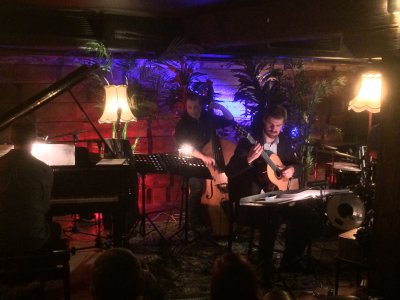
And as the genial and witty host — whose self-described comments were “as dry as a badger's arrrrse” — Thacker made it look so effortless.
Afterwards I said to him I hoped he would return with his Indian ensemble Svara-Kanti. However he noted that of all the groups he's helmed – Ritmata and Svara-Kanti among them — his most recent configuration with the Baul singer Raju Das has received the greatest acclaim. (Not his words, he's far too modest, Scottish and self-aware for that).
Let's hope Simon Thacker is invited to return and brings that group.
And that the “j” word will be relegated so he may get some much deserved mainstream publicity in advance . . . and play in a larger room to a bigger audience.
But for now, my guess is there are a couple of dozen people walking around Auckland still shaking their heads at what they witnessed and enjoyed.
Good jokes too . . . unless you came from Aberdeen and were thin-skinned.
For an lengthy interview at Elsewhere with Simon Thacker (conducted before this New Zealand tour) see here.
Simon Thacker's Ritmata Ensemble player Auckland's 1885 Club, September 9, 2015

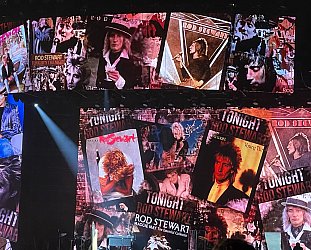
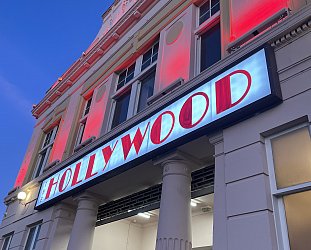

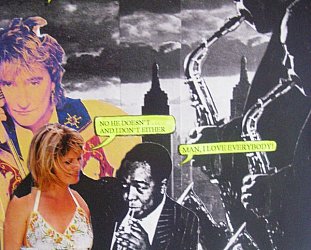
post a comment